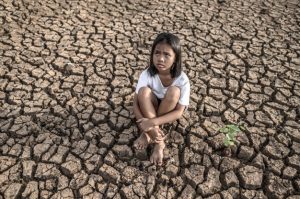We are delighted to share with you our library of resources. You can use the filter feature below to find topics most relevant to your curriculum.
Want to organise the resources you use most in one place? Register as a user to add content to your own Boards.
Causes of Poverty in the UK and the World
Poverty causes enormous suffering across the world. The causes of poverty are very complicated and can rarely be attributed to one specific thing. Rather, a range of factors combines to create circumstances that lead to poverty.
CAUSES OF POVERTY IN THE UK:
- Unemployment: When people are out of work they will find themselves living in relative poverty, without the
 money to spend on luxury items such as cars and holidays. Sometimes they won't even be able to pay for food for the family, leading them to reach out to Food Banks.
money to spend on luxury items such as cars and holidays. Sometimes they won't even be able to pay for food for the family, leading them to reach out to Food Banks. - Low paid work: Again, people who are not earning much will find themselves living in relative poverty.
- Illness: If the main earner in the family becomes seriously ill then he or she will not be able to work, sometimes leading to a financial crisis in the family.
- Marriage breakdown: When couples divorce there is often a breakdown in family life. This can be a problem if the absent parent won't or can't pay child maintenance, as it is left with the chief caregiver to pay all the bills.
CAUSES OF POVERTY AROUND THE WORLD:
- Conflict: When there is war in a country, the results can be devastating. The infrastructure can become unstable, leading to little or no access to education and health care, and people's homes can be destroyed.
 Sometimes people are forced to flee to safer areas to seek refuge, meaning they have lost everything, including their livelihoods, and means to feed and clothe their families.
Sometimes people are forced to flee to safer areas to seek refuge, meaning they have lost everything, including their livelihoods, and means to feed and clothe their families. - Political instability: A country whose government is unstable cannot function properly, often neglecting essential areas of its duties, such as maintaining education and health care services.
- No access to education: People who don't have opportunities for education are likely to be stuck in a cycle of poverty. Indeed, charities that work to relieve poverty across the world often focus on improving access to education.
- Environmental problems: Climate change has increasingly caused problems for people. It has disrupted many elements of peoples' lives, polluting the air, depleting water supplies, and impacting food supplies. All of these things have resulted in the disruption of livelihoods, sometimes even forcing people from their homes.
- Natural disasters: Cyclones, tornadoes, droughts, floods, volcanic eruptions. These are just a few examples of natural disasters that can have a catastrophic effect on peoples' lives. Whole cities have been affected, where people have lost their loved ones, homes, and livelihoods, leading to extreme poverty. In countries where the infrastructure is unstable, it can take many years to return to normal.

- Overpopulation: In places where the population grows quickly, the country's infrastructure can struggle to cope. There will often be less access to education, poor housing, and fewer jobs as there is less room for them.
- Lack of government support: The UK has access to some of the best social benefits in the world. When something goes wrong, for example, when someone loses their job, they can claim benefits to help them buy food and pay bills. However, not all countries have a government that looks after them. If you lose your job in some countries, you won't get any help to buy food or pay bills.
- High national debt: If the government of a country has borrowed money from another country, this will have a negative effect on the people living there. The government will need to pay back its debt, so there will be less money to go around for the usual services it provides, such as health care and education. It can also cause higher taxes and interest rates.
- Discrimination: Wherever there is discrimination in society there will be a culture of social inequality, one in which certain sections of the population don't have access to education, health care, or opportunities to gain
 fairly paid employment.
fairly paid employment.
In some countries, minority groups have been denied citizenship, which means they may struggle to access legitimate employment. In other countries, these groups continually experience government-sanctioned abuse and violence directed toward them. These people are often simply struggling to survive and have very little chance of lifting themselves out of the cycle of poverty.
